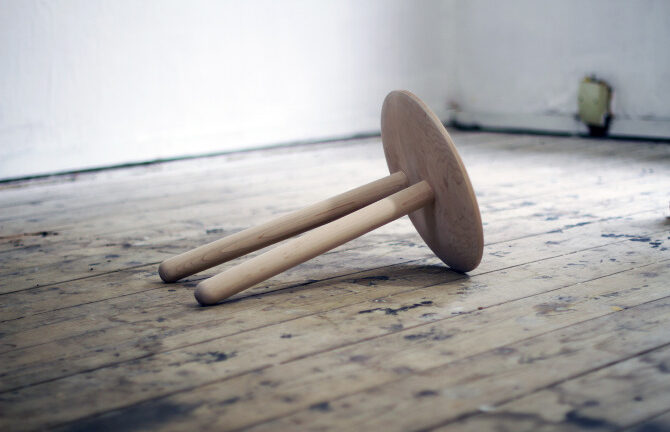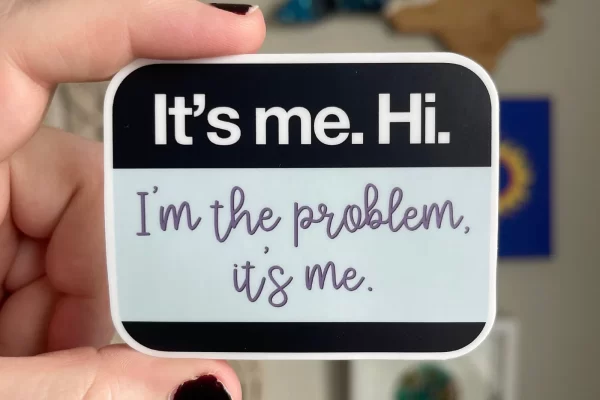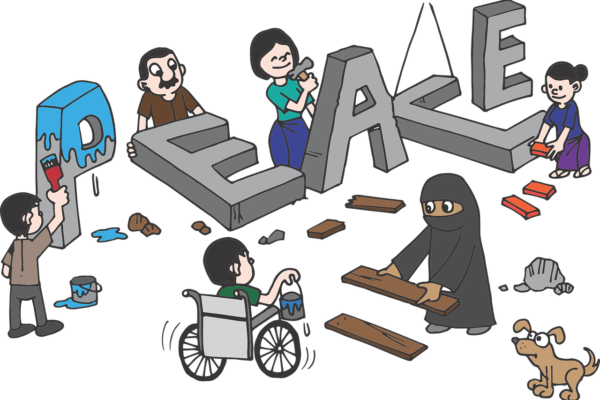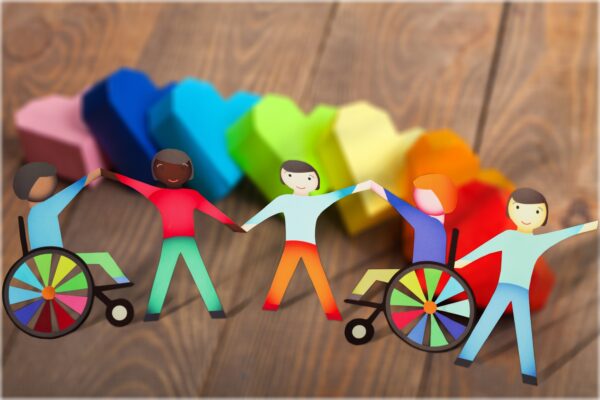One of my college professors used to say ‘anything worth doing is worth doing poorly.’ I didn’t understand that for years because I didn’t do anything poorly, I couldn’t do anything poorly, I had to Do. Everything. Perfectly.
But brushing your teeth for 30 seconds is better than not brushing them at all when that 2 minutes seems exhausting. Doing ten minutes of yoga is better than 10 minutes of sitting when 30 minutes of cardio sounds impossible. Changing my clothes works great when a whole shower is too much. Standing on the porch for a few minutes is worth it after being in the house for three straight days because I don’t have the energy to go anywhere.
Anything worth doing is worth doing poorly… because doing it poorly is better than not doing it at all.
redheadhatchet, Tumblr
A friend posted the quote above, which inspired this post. It’s really interesting to me, probably in part because because my dad always taught my sister and I the exact opposite. He had all these dad-isms: “Be little ladies, not little urchins,” “Accidents happen when you’re not careful,” and one of his all time favorites – “If you’re gonna do something, do it right!” Perfectionism was definitely a goal for him, and looking back now as an adult, probably something he projected onto his children in his parenting style. Praise for A’s, shaming for B’s. I parent my own kids in a manner that couldn’t be more different – encouraging my kids to get messy, try it out and quit if you don’t like it, and don’t be afraid to make a mistake because that’s how you learn. My dad’s perfectionism clearly did not rub off on me because I’m really good at starting things and only kinda good at finishing. Sometimes the goal shifts, or my energy wanes, and that’s okay. One of my favorite sayings is an ancient Chinese proverb: Fall down seven times. Stand up eight. It doesn’t really matter how many times you fail as long as you keep trying, so the only true failure is in giving up completely. As humans, our nature is to be curious and if something doesn’t work, to keep working on it until it does, if that thing is truly worth doing. I once read that successful people fail a lot more often because they’re not afraid to put themselves out there keep trying. You might ask 10 people for a date and they all say no, or you might ask 100 and only 1 says yes and you end up marrying them. Persistence pays off.
How does any of this relate to people with disabilities? Well, people with disabilities fall down a lot. Could be physically, could be metaphorically. My daughter has low muscle tone and didn’t walk for the first time until 3 weeks before her third birthday. She is four and a half now and walks all over the place, but she still falls. Through the lens of our perfectionist society, she literally isn’t measuring up. She isn’t just getting the occassional B, she isn’t even part of the class. Other kids her age are learning how to write their names and she’s still trying to learn how to move and eat and see. Although it is more difficult for her to move through the world or even to simply hold herself up, all society sees are the failures. The falls. When I look at my daughter though, I don’t see that. What I see is her resilience. I see that no matter how many times she falls, she always stands up. She always tries again. Always moves forward, any way she can.
Once when my daughter’s occupational therapist declined to help us with the feeding chair that she had previously agreed to order, I used the metaphor of a two-legged stool in a (here’s that word again) failed attempt to reason with her. For people with hypotonia, life is like living in a world where everyone else has recliners and you’re being made to sit on a two legged stool everywhere you go. While others are relaxing and have energy left to focus on other things, you have to make a conscious effort just to balance and stay upright. And even though you’re working so much harder than everyone else, no one can see the difference in the seats because society often doesn’t recognize invisible disabilities. So they gaslight you, tell you you’re lazy for sitting, and scold you for asking for help – you’re clearly doing just fine without supports. Those are for people who are “more disabled than you.” Or less disabled. Despite the fact that you are an expert on living with your disability, their professional expertise tells them you don’t need it. They don’t care how hard you’re concentrating on balancing, all they see is that it looks like you’re sitting in line with everyone else. Even if you’re one breath away from falling.
Both as a person with chronic illnesses that limit my energy, and as a parent of a disabled child, I often find myself in the situation that my friend posted about above. I often have to make a choice to do something poorly or not at all. I may not have the energy to both shower and wash my daughter at the end of a long day, so she’s the one that gets a bath. Sometimes it’s a two-hour bath while I sit on my stool next to her (in four-legged luxury) and eat peaches straight out of the can because that’s all I have left in me. You can only do what you can do and that’s okay. Disability or not. It’s something we need to normalize in society. It’s okay to fall. It’s okay to fail. It’s okay to decide that something is worth doing enough to do it poorly.
When it comes to my dad’s sayings, surprisingly, I sometimes find myself using them with my own kids. I just change the narrative. Rather than “Accidents happen when you’re not careful,” I simply say “Accidents happen.” Accidents happen full stop. Sometimes accidents happen. The milk gets spilled and if anyone wants to cry about it, I’m there to wipe their tears, or if they’d rather we clean it up together, here’s two rags. Easy. Dealing with the constant metaphorical falls of parenting a disabled child is not quite so easy for me. From the therapists whose job it is to help but decide they are too busy to bother, to the long waiting lists for services we can’t ever seem to get to the end of, to being told no to programs that might help because “she won’t ever learn,” it gets to be mentally exhausting. But just when I think I’m ready to throw my hands up and give up altogether, I remember an important lesson I once learned. Not the lesson my dad taught me, but the one my daughter did. It’s okay to fall. Just get back up.
– Author note: If there are any typos in this article, consider it done for effect. Better I did it poorly than not at all. 🙂





Thank you.